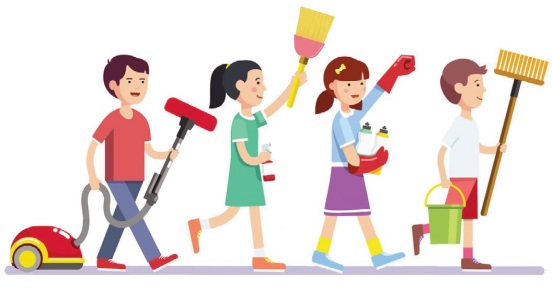5 W SIMPLE IDEAS TO KEEP KIDS BUSY IN THE SUMMER BY JENN ADAMS
It can be hard to find summer activities for kids. I know that it can be full of questions for families, especially for families of students with special needs. So I try to ease the tension and worry for my families with some of the ideas I've listed below. Working as a team to support students even in the summer is crucial to helping them.
When it’s the end of the school year, we often are so focused on just getting to the end. Teachers and related service providers can do more to help! This can be a stressful time of year for families after an entire school year of routine and structure. Now it’s summer and students have lots of downtimes.
Some students have support in the summer if they attend either summer school or an extended school year program. However, research has shown that many of us benefit from some structured activities. Who doesn't love a schedule and a plan to set the tone of their day? Let's read a few ideas that work well as summer activities for kids!
MAKE A SUMMER ACTIVITY SCHEDULE
This can be a calendar on your fridge, a weekly chore list, or a daily set of tasks. As I stated before, routine is in our human nature and children are no different. So if they are capable; sit down with them before summer hits and fill that calendar in. Mark things like vacations, summer camp dates, and or other family activities you have planned. Find a few other things to keep students active, but not overwhelmed. Ask them for some input on things they would like to do too!
If a calendar isn’t enough make a list of chores you would like your child to do around the house. This could be things like taking out the trash, walking the dog or reading for 15 minutes. Setting a simple routine can ease the question for many children, of what they should be doing. It also saves families the time of coming up with things last minute. Making a simple checklist could provide more visual support also! The child can check off the things they have completed as they go.
Of course, I also love a good daily visual schedule. It can have words, pictures, or a combination of both. They typically are interactive and students can take the visuals off as they are completed. Listing out a child’s whole day can provide them with the predictability they crave. Additionally, it helps to know when a break or reward is coming for the work they are completing.
FIND FUN AROUND THE COMMUNITY
Check the local newspapers. Many communities have a summer guide with activities going on. This could be firework shows, community
days, outdoor movies, farmer's markets, or story time at the public library. Many of these are free and are great for families that want to get out in the community.
Children need these opportunities, even if they are in small doses, to be out in their community. It provides them time to practice skills they have learned and generalize them. Things like being social, using their manners, paying for items, and safety skills. We teach these skills at home or at school, but summer is a great time to test them in the community.

SKILL DRILLS: Life skills, the things we need to know how to do but don't learn about in most school settings, are a great thing to work on during the summer months.
Summer camps for short or long periods of time are also a great summer activity for kids. Some might be free and others cost money. You can find summer camps with themes and all degrees of participation from half-day, full-day, or even overnight camps. Check with your local area to see what is available through youth programs, schools, or camps. You might find something that interests your child in areas such as sports, art, theatre, and more!
USE SUMMER TO TACKLE LIFE SKILLS
We talked about generalizing skills in the community. The summer can also be a great time to work on life skills. The things we need to know how to do, but don’t learn about in most school settings. Instead of or in addition to: working on academics in the summer, try teaching your child to do some of these things:
- Washing the dishes
- Doing the laundry
- Vacuuming the house
- Sweeping the floor
- Putting away the groceries
- Mowing the lawn
- Washing the dog
- Getting the mail
- Getting dressed independently
- Tying shoes
- Putting away clothing
- Making a phone call
And you can see how I can easily go on and on. I do think that we can’t just give a child the directive of “washing the dishes.” You have to show and teach them the steps involved in that process. Most of us learn better by watching and doing.
It’s important to take the time to model these activities and provide some coaching along the way. I like to use a task analysis to support. This is basically a “recipe” or list of directions on how to